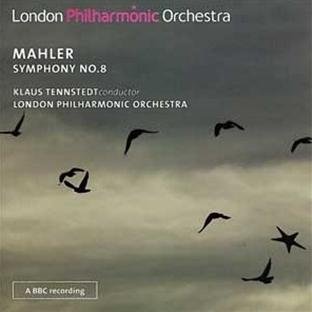Mahler Symphony No 8
An overwhelming ‘Symphony of a Thousand’ from a natural Mahlerian
View record and artist detailsRecord and Artist Details
Composer or Director: Gustav Mahler
Genre:
Orchestral
Label: LPO
Magazine Review Date: 6/2011
Media Format: CD or Download
Media Runtime: 0
Mastering:
Stereo
Catalogue Number: LPO0052

Tracks:
| Composition | Artist Credit |
|---|---|
| Symphony No. 8, 'Symphony of a Thousand' |
Gustav Mahler, Composer
Eike Wilm Schulte, Baritone Eton College Boys' Choir Gustav Mahler, Composer Hans Sotin, Bass Jadwiga Rappé, Contralto (Female alto) Jane Eaglen, Soprano Julia Varady, Soprano Kenneth Riegel, Tenor Klaus Tennstedt, Conductor London Philharmonic Choir London Philharmonic Orchestra London Symphony Chorus (amateur) Susan Bullock, Soprano Trudeliese Schmidt, Mezzo soprano |
Author: Edward Seckerson
And so, with the biggest upbeat in music (and from days when the Festival Hall organ was complete!), Mahler’s hymnic invocation swept all before it. It was almost as if Tennstedt was striving to compensate for the constrictive sound of the hall by building the spatial perspective into his reading. Come the mighty development, he takes the text “Accende lumen sensibus” (“Inflame our senses with light”) at absolutely face value. As the fervour mounts to fever pitch – his sopranos Julia Varady and Jane Eaglen hurling out top Cs like they could be the last they ever sing – one almost doesn’t notice that the tempo is getting broader and broader. Tennstedt is one of the few conductors in my experience to almost convince me that impetus has nothing to do with speed. And, of course, though there is no ritardando marked in the momentous bars leading to the point of recapitulation, Tennstedt (who was nothing if not a traditionalist) is having none of it – the heavens duly open but in the certain knowledge that they will do so again, only bigger, with the Chorus Mysticus.
Part 2 begins with a poco adagio which, thanks to the kind of high-intensity string-playing only Tennstedt could elicit from the LPO, tugs at the emotional fabric of the music as few dared to do. To some it will feel overwrought, to most (or at least to staunch Mahlerians) it will be another instance of Tennstedt’s total identification with this music. His painting of the Faust scene is characteristically craggy, with the arrival of the Doctor’s heavenly escort prompting angelic high jinks far rougher and readier in tone than in some accounts. So, too, the casting of the male soloists, with Kenneth Riegel’s Doctor Marianus eschewing head voice for an often pained rendition of the cruelly high tessitura.
But as the Mater Gloriosa duly floats into view (the lovely Susan Bullock) and the force of love becomes unstoppable, Tennstedt is overwhelming. Try topping the orchestral peroration, offstage trumpets stretching the “Veni, Creator Spiritus” motif from the interval of a fifth beyond the octave to a heaven-storming ninth.
Discover the world's largest classical music catalogue with Presto Music.

Gramophone Digital Club
- Digital Edition
- Digital Archive
- Reviews Database
- Full website access
From £8.75 / month
Subscribe
Gramophone Full Club
- Print Edition
- Digital Edition
- Digital Archive
- Reviews Database
- Full website access
From £11.00 / month
Subscribe
If you are a library, university or other organisation that would be interested in an institutional subscription to Gramophone please click here for further information.




